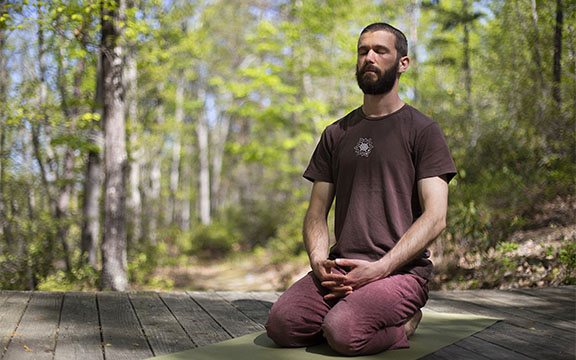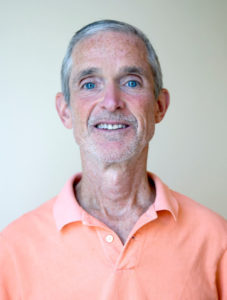
Photo by mizuno k on Pexels.
I know so many people, that when I ask how they are doing, respond with something about how busy they are. It has become the status quo for our lives to be filled to the maximum and beyond so that we’re not really aware of how driven we are, how stressed our lives have become, and how it is affecting us. Even when we are aware of it to some degree, we may feel unable to do much about it. We seem to value doing many things over being well and at peace. Our sense of self-esteem has become so strongly associated with being busy and stacking up accomplishments that we sacrifice self-care to create an impressive image that will make us look good.
So many of the ways that we hurt ourselves seem to be rooted in this need to win the love or admiration of others (and even ourselves) so that we can be happy. Yoga teaches us that our effort to find happiness by controlling things outside ourselves, such as the opinion of others, will never bear lasting fruit. Our endless efforts to prove worthy of love may bring temporary results, but as we probably all know from current relationships, the affection of others comes and goes; demanding it or holding it too tightly is generally counterproductive. Keeping busy may help us feel good about ourselves, but this feeling will also prove temporary when the pain of pushing so hard catches up with us. There is true irony in discovering that we are hurting ourselves in our attempt to feel good, to be happy.
It’s well known now that a number of the physical problems we experience in western society are caused, or complicated by, stress and that many ailments can be improved significantly by proper rest, diet, exercise, and self-acceptance. Of course these lifestyle changes take time. It is rewarding to see how popular Hatha Yoga has become, but even in these classes, the engrained belief that “more is better” can dominate the experience, and straining to get a better pose can be the norm. I know I’ve hurt myself more than once from wanting to be—or to look—“better” than what I am. I remember really overdoing it with fasting during my younger fanatic days, and revolting afterward with equally zealous overeating.
What to do? I can’t pretend to have mastered this issue. I still get caught up in a workaholic fervor so, clearly, I have a lot to learn. I can share what I’m learning and what Sri Swami Satchidananda, my Guru, has taught me. We can address this tendency by both reflecting on the root cause in the mind and by undertaking step-by-step changes in our daily habits.
We can consciously begin to value our physical and mental health by taking small steps to make time for self-care. Preparing healthy meals, getting a massage, taking a Hatha class, spending time in nature, or with loved ones, and time alone to be quiet or creative, are all things that will help maintain a balance of giving out and restoring energy.
In the midst of busy days, with even a few extra minutes (i.e., if someone is late for an appointment), we can relax and reflect on how we’re feeling. A few minutes of stretching, deep breathing, and consciously relaxing the abdomen, neck, and shoulders, and especially the eyes, can have a marvelous renewing effect. When we eat, we can make it a habit to stop for a moment, calm ourselves with a few breaths, bless the food, and then chew it well. When we answer the phone, we can pause for a few seconds to be present for that call.
An even more powerful change, with much deeper benefits, is to reserve one evening per week as unscheduled time that you can devote to caring for yourself. The idea is to turn off the TV and the phone and take a bath, do a deep relaxation, read, and/or go to bed early—whatever would refresh you. Sri Gurudev has often encouraged us to spend some time each week practicing silence. If you have a family, such an evening might be important time apart from them, but it might also be planned as an evening to have meaningful time together to play, relax, and appreciate each other.
A similar practice that has been so helpful to me is to fast one day per week, giving a rest to the body and giving me some extra time to rest from doing. I always sleep better that night and feel rejuvenated the next morning. In addition, my practice of meditation and Hatha the next morning is inevitably more alert and focused—the effects often lasting through that whole day. Some may find it difficult to fast the whole day, so you could try eating only fruit for a day or skipping the evening meal, which provides similar benefits.

Photo by Bill Geoghegan for Yogaville.
When we experience the benefits of any of the above ideas, even a small one, we will be inspired to continue it and perhaps to take another step toward the same goal. We may even be inspired enough to try a bigger step, like attending a weekend retreat dedicated to rest and reflection, communing with nature, or spiritual practice. Such a retreat can very effectively relieve built up stress and help establish new habits, like a regular practice of Hatha Yoga and meditation.
These practices, more powerfully than any other suggestions I’ve made, can heal the harmful effects of stress and restore balance to the body and mind. And the other remarkable benefit they offer is teaching us how to prevent a stressful response to life’s difficulties in the first place. By developing an inner awareness of our physical and mental condition, we learn to notice tension or anxiety when it first appears; to respond to that situation, mindful of our capacity at that moment and equipped with the effective tools for relaxing that those practices bring us.
As a meditative practice bears fruit, we begin to have moments of real contentment that are not contingent upon completing tasks. A deeper examination of such moments reveals that this experience is the result of letting go of our preoccupation with making things happen, with trying to create happiness. Instead, as the mind begins to quiet down, we approach a natural completeness and fulfillment that is already there, a feeling that is wonderfully relieving and healing.
Though these glimpses of our true nature may not last as we move on with our day, they can help in several ways. One is to inspire us to continue making time for the practices that have quieted the mind. Secondly, we can create an affirmation based on that experience that reminds us of what we have found to be true in ourselves. We can use that affirmation regularly to assert that truth, to counter the old patterns of thought we have held that still arise. As our practice enables us to repeat this experience of inner peace and that deepens, our old ways of thinking about achieving happiness begin to erode and we can create a new relationship to doing things. Our doing can become a joyful expression of being, with the wells of light and love that bubble up from within.
When we approach life with a sense of lack, clutching for something to make things right and bring fulfillment, that narrow vision of who we are can only serve to close the heart. When we nourish ourselves with moments of peace, our hearts overflow and we can truly serve others, supporting them on their journeys to recognizing their own inner peace and joy.
About the Author:
 Swami Ramananda is the president of the Integral Yoga Institute of San Francisco and a greatly respected master teacher in the Integral Yoga tradition, who has been practicing Yoga for more than 35 years. He offers practical methods for integrating the timeless teachings and practices of Yoga into daily life. He leads beginner, intermediate, and advanced-level Yoga Teacher Training programs in San Francisco and a variety of programs in many locations in the United States, Europe, and South America. Swami Ramananda trains Yoga teachers to carry Yoga into corporate, hospital, and medical settings and has taught mind/body wellness programs in many places. He is a founding board member of the Yoga Alliance, a national registry that supports and promotes Yoga teachers as professionals.
Swami Ramananda is the president of the Integral Yoga Institute of San Francisco and a greatly respected master teacher in the Integral Yoga tradition, who has been practicing Yoga for more than 35 years. He offers practical methods for integrating the timeless teachings and practices of Yoga into daily life. He leads beginner, intermediate, and advanced-level Yoga Teacher Training programs in San Francisco and a variety of programs in many locations in the United States, Europe, and South America. Swami Ramananda trains Yoga teachers to carry Yoga into corporate, hospital, and medical settings and has taught mind/body wellness programs in many places. He is a founding board member of the Yoga Alliance, a national registry that supports and promotes Yoga teachers as professionals.

